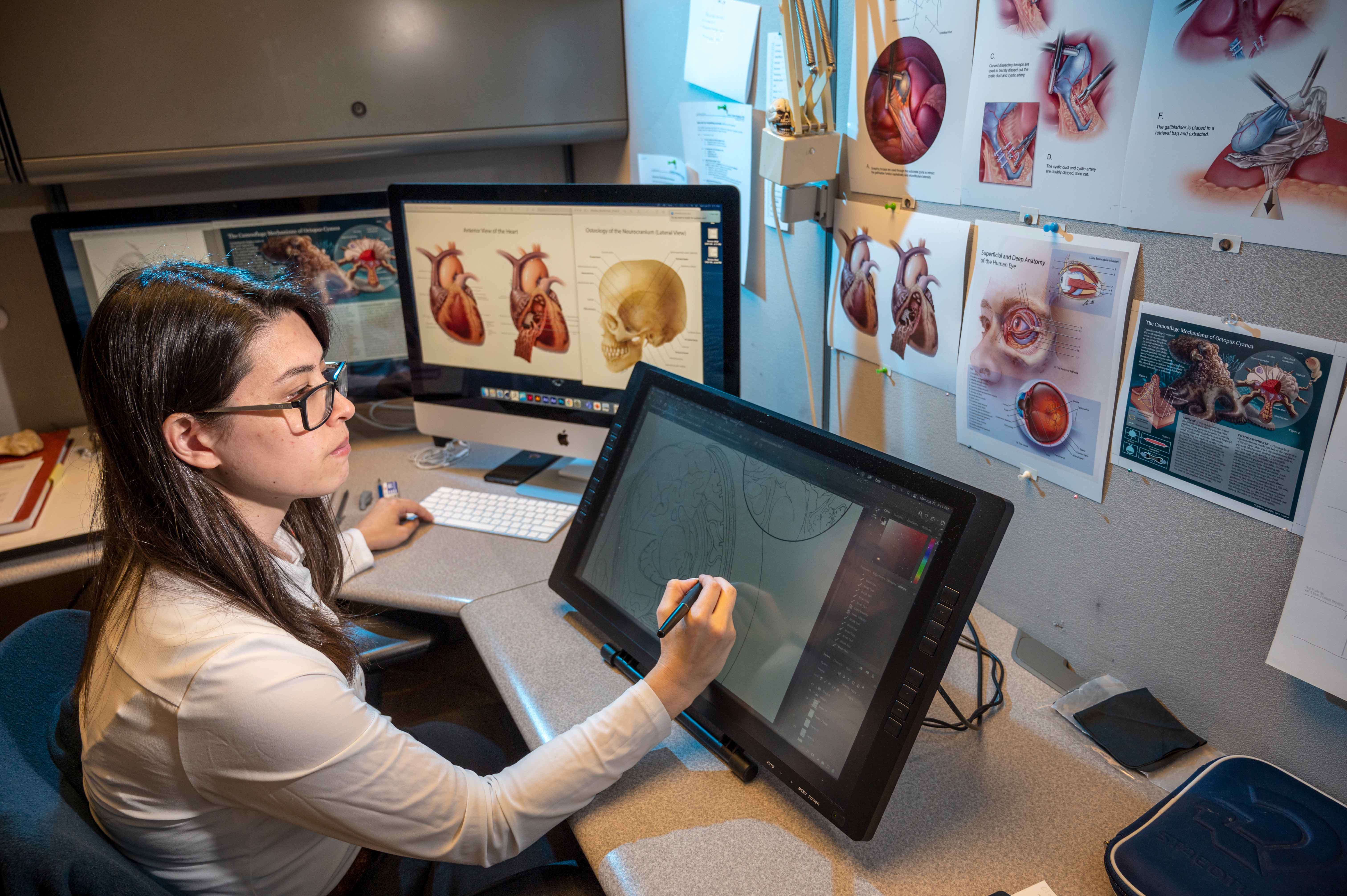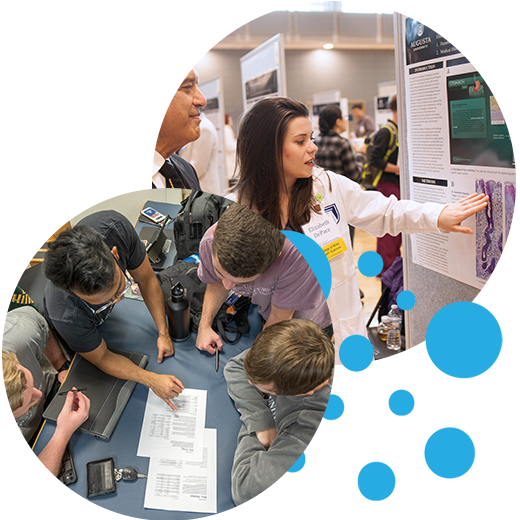- Augusta University
- Center for Writing Excellence
- Scientific Communication Resources
Scientific Communication Resources
Scientific communication skills are essential for collaborating with other scientists, conducting research, and disseminating findings to a wide range of audiences.
In addition to written communication, scientists must also be well-versed in designing effective oral presentations and multimodal compositions that incorporate written text, images, audio, and video. Understanding the conventions of scientific genres and style as well as being able to make rhetorically effective decisions about the organization and presentation of content is imperative to being a successful scientific communicator.
In spite of the importance of scientific communication, many scientists and health professionals lack explicit instruction in scientific writing. The Center for Writing Excellence provides several resources for you to improve and refine your scientific communication skills.

Communication and Writing
What is Scientific Communication?
Scientific communication is a form of technical communication composed by scientists for other scientists. This style of communication emphasizes objectivity, precision, and concision in order to enhance readability and clarity.
Scientific Writing vs. Science Writing
You may see the terms “scientific writing” and “science writing.” Sometimes, these terms are used interchangeably, but they actually have distinct definitions. “Scientific writing” refers to writing by scientists for scientists, whereas “science writing” refers to writing by scientists for the public/popular audiences. The key distinction lies in the intended audience. Scientists are familiar with many of the technical terms and jargon of their discipline; thus, scientific writing can use this kind of language freely, as long as it enhances clarity. Public and lay audiences, however, will be less familiar with technical language and jargon. Scientists writing for the public through science writing will need to use more accessible language and may also employ more journalistic or narrative-driven techniques to convey important scientific information.
Help With Scientific Communication
One-on-One Coaching
The CWE offers one-on-one and small group consultations for all AU-affiliated undergraduate, graduate, and professional students, faculty, and staff. Undergraduates can benefit from working with one of our undergraduate peer consultants, while graduate students, faculty, and staff are encouraged to meet with our professional staff. We offer in-person and online consultations. The CWE assists at any stage in your composing project. Here’s just a few things we can assist you with:
- Learning scientific citation styles, such as APA, AMA, ACS, APS, IEEE, and others
- Learning sentence-level stylistic conventions that improve clarity, precision, and objectivity
- Learning organizational conventions for popular scientific genres
- Lab reports
- Abstracts
- Research proposals/studies
- Literature reviews
- Posters
- Speeches/presentations/slide decks
- History of present illness/case studies/clinical notes
- Multimodal projects, such as Infographics or other forms of data visualization
- Honors theses
- CURS projects
- Cover letters, personal statements for graduate/residency programs, and professional/graduate applications
- Seminar papers, capstones, theses, and dissertations
- Grant proposals
- Manuscripts for publication

Schedule Your Consultation
The CWE offers freestanding workshops, writing groups, and boot camps focused on scientific communication regularly. See our home page for updates on upcoming events. Faculty can also request workshops on scientific communication to be offered in their courses. The CWE can present pre-existing workshops or design custom workshops based on your course learning outcomes, needs, and goals.
In addition to these resources, you can schedule one-on-one consultations to review your projects with our trained staff. Appointments can take place in person, live online, or through written feedback. We offer availability on both the Summerville and Health Sciences campuses.
Additional Resources
The AU CWE's Scientific Writing Resources (Academic and Professional Audiences)
- Scientific Style
- Creating Cohesion: The Known-New Contract
- IMRD Checklist
- Learning a New Citation Style
- Writing Strong Discussion Sections
Scientific Writing Resources from Other Universities (Academic and Professional Audiences)
- Duke Graduate School Scientific Writing Resource
- Duke University Medical Center & Library Archives: Scientific Writing
- PLOS Writing Center
- Reasoned Writing: A Framework for Scientific Papers
- TEPHINET Scientific Writing
- University of North Carolina Chapel Hill Writing Center: Sciences
- Emory University Woodruff Health Sciences Center Library Scientific Book List
- Caltech’s Hixon Writing Center Resources
Science Writing Resources (Writing for Public and Lay Audiences)
- American Scientist: 12 Tips for Scientists Writing for the General Public
- Knight Science Journalism MIT: Journalism Resources
- National Association of Science Writers: New to Science Writing
- National Association of Science Writers: The Science Writer’s Handbook Series
- The Open Notebook
- Purdue OWL: Healthcare Writing
- Starting a Career in Science Writing
Reach Your Full Potential
We assist with writing, multimodal projects, and oral presentations for any subject or discipline at any stage in the writing process.